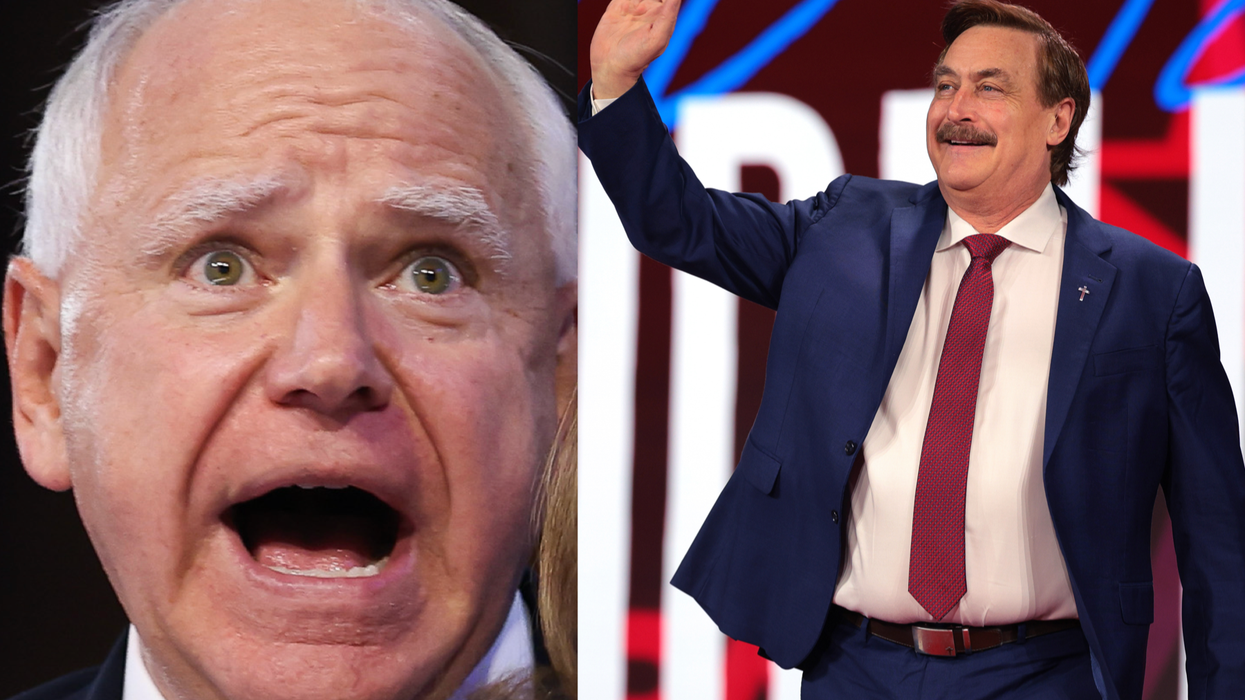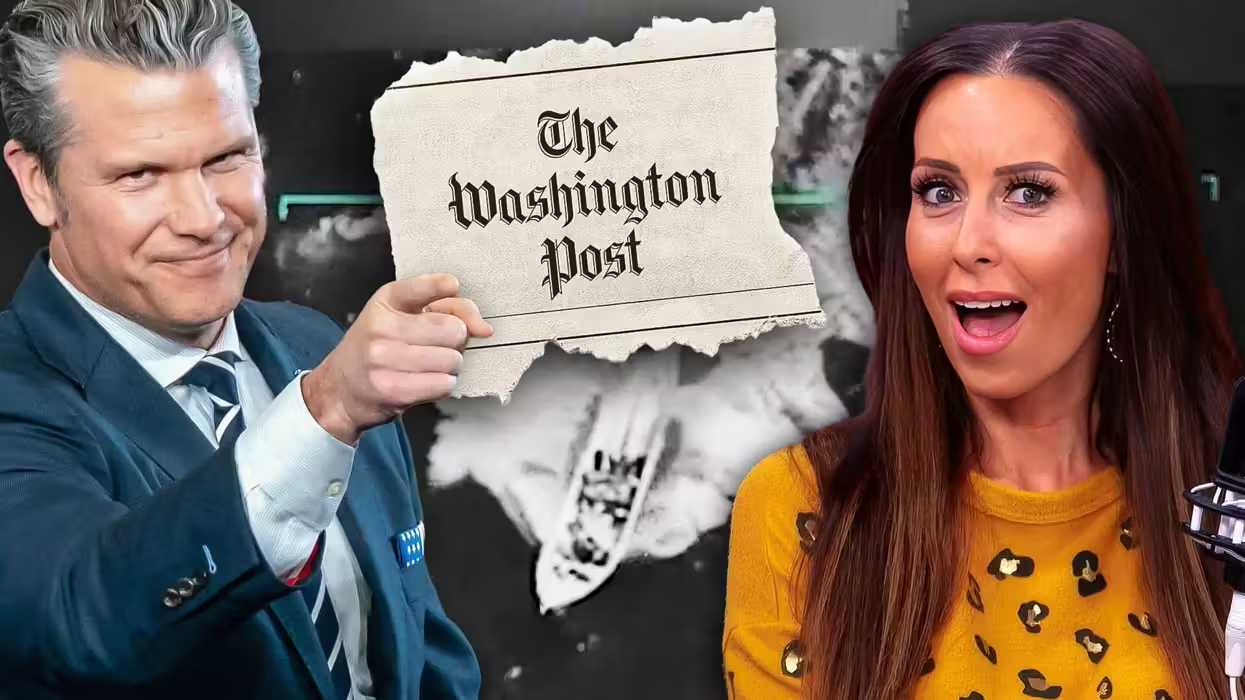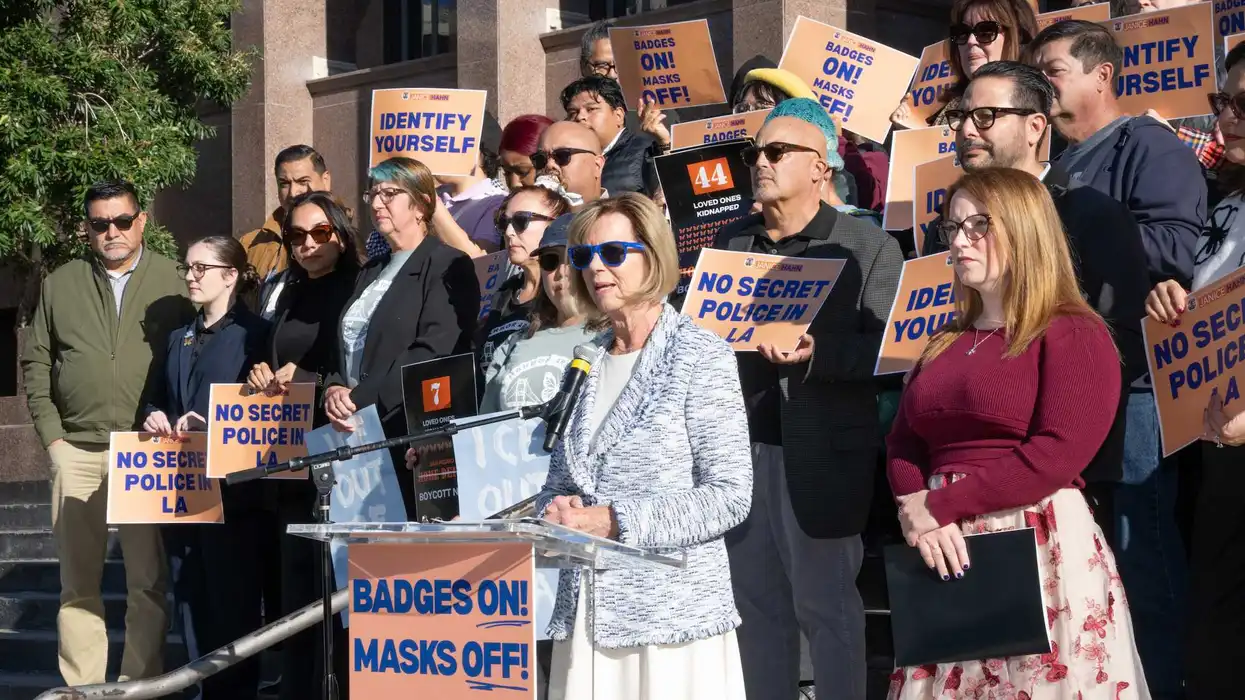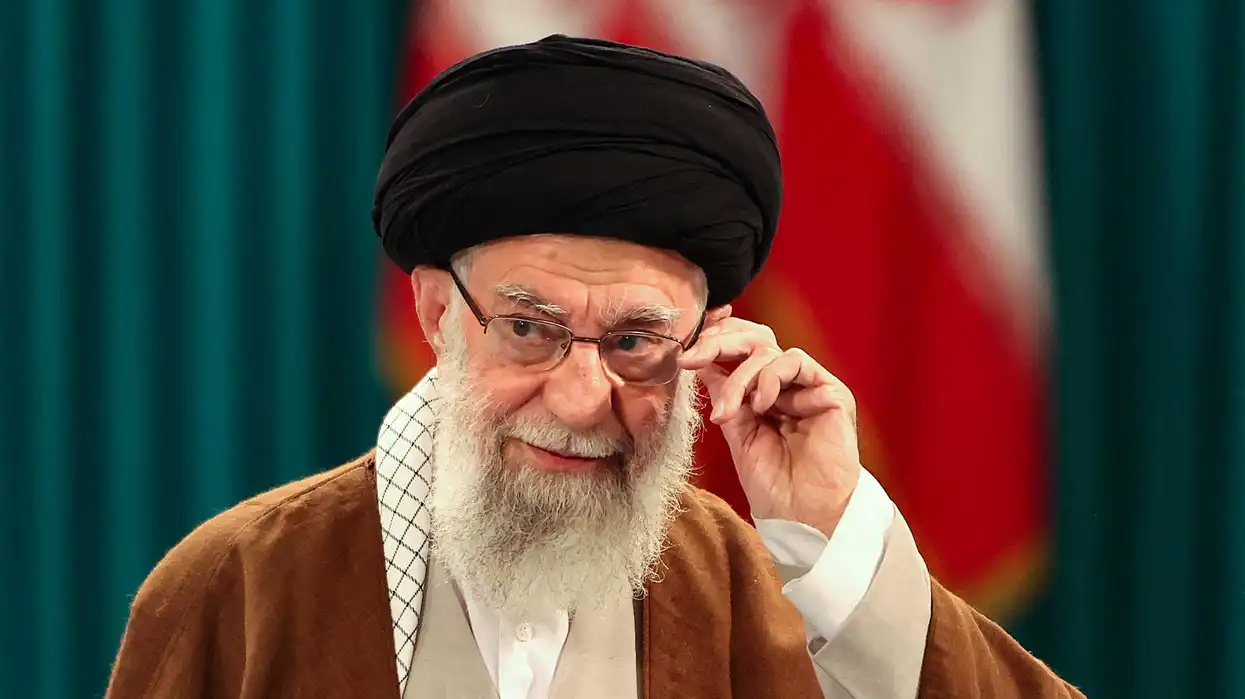
© 2025 Blaze Media LLC. All rights reserved.
"Socialism and secularism go hand in hand, as do faith and freedom."
 It's certainly a political phenomenon, but is the Tea Party also a "Spiritual" movement?
It's certainly a political phenomenon, but is the Tea Party also a "Spiritual" movement?
For the past two years, a number of media outlets have highlighted the intermingling of Christianity and Tea Party philosophy. Some have lamented the combination of the two, while others have sought to showcase how the Tea Party's basic tenets align with Christian principles.
In his new book, “The Great American Awakening,” South Carolina Sen. Jim DeMint’s (also apparently known as "Senator Tea Party") discusses his take on the Tea Party as well as his faith. If you don't already know it, DeMint is an unabashed "Tea Party Republican" and Christian.
While his book focuses primarily on the American political system and the rise of the Tea Party, DeMint claims that the book's title is reminiscent of the Second Great Awakening (a time of religious revival in the early 1800s). As RNS highlights, the connection between one of America's most well-known political movements and the Christian faith is overtly made in DeMint's words:
"(The Tea Party) is as much a spiritual awakening as a political awakening. The concern about our country...has awakened the faith of many people."
In "The Great American Awakening," DeMint goes as far as to tie concern over the government's size and scope to religion. He writes:
“Big government is a religious issue. History shows in nations where there is a big government, there is a little God. When people are dependent on government, they are less dependent on God, and their spiritual fervor fades. Socialism and secularism go hand in hand, as do faith and freedom.”
While these words clearly illustrate DeMint's own beliefs on the matter, is this association present across the political landscape? Back in October 2010, CBN's Paul Stand penned a piece in which he explored the close ties between the Tea Party and Christianity. Below, you can watch the associated newscast CBN put together on this story:
According to Strand, Dr. Robert Jones, the CEO of the Public Religion Research Institute (PRRI), led a study last year that found a deep connection between conservative Christians and the Tea Party. Jones says:
"We found that nearly half, 47 percent, of those who say they consider themselves a part of the Tea Party movement also say they consider themselves part of the conservative Christian movement."
Some critics contend that Tea Party adherents are more Libertarian in nature, but Jones disagrees. His research found the majority of Tea Partiers (63 percent) saying that abortion should be illegal -- a view that aligns perfectly with the conservative Christian movement. NPR pulled out some of the highlights from PRRI's research that help to reinforce this point:
[The Tea Party is] an overwhelmingly Christian group. 81% identify as Christian...and only 18% [are] in favor of gay marriage.
 Earlier this week, scholars Robert Putnam and David Campbell penned an op-ed for The New York Times in which they claimed that Tea Party supporters have been brought together by their social conservatism and a desire to see religion and politics integrate.
Earlier this week, scholars Robert Putnam and David Campbell penned an op-ed for The New York Times in which they claimed that Tea Party supporters have been brought together by their social conservatism and a desire to see religion and politics integrate.
Putnam and Campbell believe that, based on the nation's trend away from enjoying the convergence of faith and religion, the Tea Party may have a downhill trajectory.
They claim that polls show that the Tea Party is declining in its approval among Americans. In coming to this conclusion, they cite an April 2010 New York Times/CBS News survey (among other data) that found 18 percent of Americans with an unfavorable opinion of the Tea Party; now, they say recent research finds 40 percent of the nation opposing the conservative political movement. The two write:
Of course, politicians of all stripes are not faring well among the public these days. But in data we have recently collected, the Tea Party ranks lower than any of the 23 other groups we asked about — lower than both Republicans and Democrats. It is even less popular than much maligned groups like “atheists” and “Muslims.” Interestingly, one group that approaches it in unpopularity is the Christian Right.
To back up their claim that the real tie among the Tea Party faithful is social conservatism and the urge to see religion and politics come together, they cite Tea Party support for Michele Bachmann and Rick Perry, among other Christian politicians. Their conclusion?
"On everything but the size of government, Tea Party supporters are increasingly out of step with most Americans, even many Republicans."
Of course, making a prediction like this might be difficult. After all, the Tea Party is relatively new in its inception. While polls showcase trends toward specific ideals, the social and political landscape is ever-changing. Also, considering the horrific situation America's fiscal house is currently in, if Tea Party faithful push for candidates who have solid plans, the public may still come alongside them (while looking past the social conservatism).
Although liberal preacher Jim Wallis doesn't think Tea Parties are Christians, these researchers, among others, do believe that adherents follow the Christian faith. Go figure.
In the end, it's still early to be judging the Tea Party's potential influence during the 2012 race and beyond. But, the push for small government is certainly something that is resonating with the American public -- regardless of how spiritual or socially-conservative the Tea Party is on the whole.
Want to leave a tip?
We answer to you. Help keep our content free of advertisers and big tech censorship by leaving a tip today.
Want to join the conversation?
Already a subscriber?
Billy Hallowell is a digital TV host and interviewer for Faithwire and CBN News and the co-host of CBN’s "Quick Start Podcast."
Billy Hallowell
Billy Hallowell is a digital TV host and interviewer for Faithwire and CBN News and the co-host of CBN’s "Quick Start Podcast."
more stories
Sign up for the Blaze newsletter
By signing up, you agree to our Privacy Policy and Terms of Use, and agree to receive content that may sometimes include advertisements. You may opt out at any time.
Related Content
© 2025 Blaze Media LLC. All rights reserved.
Get the stories that matter most delivered directly to your inbox.
By signing up, you agree to our Privacy Policy and Terms of Use, and agree to receive content that may sometimes include advertisements. You may opt out at any time.






